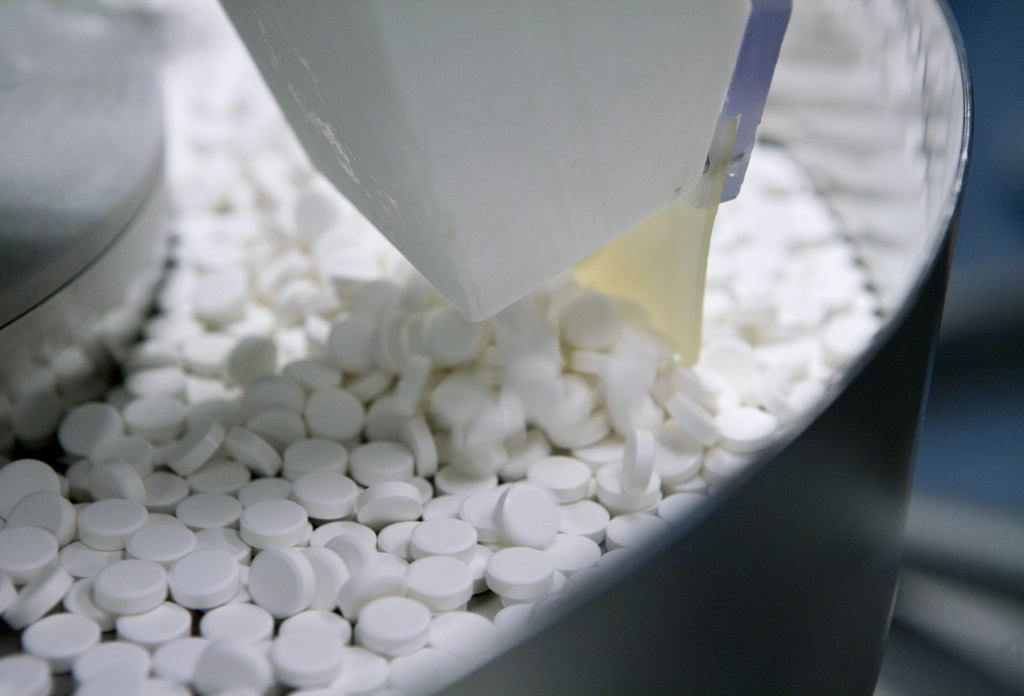Big pharma back in the game it made

Big pharma is back. That, at least, is the impression created by a wave of new cancer drugs rapidly approaching market.
After years of hand-wringing about an innovation drought, there is hope that this month’s US regulatory approval for a groundbreaking skin cancer medicine from Merck signals a revival in productivity.
Keytruda, shown to extend significantly the lives of some people with advanced melanoma, the most deadly form of skin cancer, is first among a fresh class of treatments that harness the immune system to kill cancer cells.
Bristol-Myers-Squibb, another big US drugmaker, is hot on Merck’s heels with its own melanoma medicine, while Roche of Switzerland and AstraZeneca of the UK are also in the mix.

Cancer is not the only area where innovation has picked up. Hepatitis C has also seen advances that are producing big commercial dividends.
However, whereas Gilead Sciences, the relatively young Californian biotech company, has so far been the main beneficiary of the hepatitis C windfall, the breakthroughs in cancer are breathing fresh life into more established players.
Andrew Baum, analyst at Citigroup, predicts that annual revenues from so-called immuno-oncology drugs could climb as high as $35bn – outstripping the value of previous blockbuster categories such as cholesterol-lowering statins.
Others are more cautious but few doubt that these products promise a shot in the arm for the industry.
This optimism is reflected in Merck’s share price, which has gained more than a quarter over the past year in large part because of the prospects for Keytruda, which analysts predict will achieve $1.5bn in annual sales by 2017.
The drug is known as a checkpoint inhibitor which works by blocking a protein called programmed death receptor 1, or PD-1, which cancer cells latch on to in order to avoid detection by the immune system.
By targeting this protein, Keytruda and similar drugs aim to unleash the body’s disease-fighting T-cells against tumours. Most people with advanced melanoma previously died within a year. Recent data showed that, when treated with Keytruda, 69 per cent of patients were still alive after a year and 62 per cent after 18 months.
Rival anti-PD-1 drugs have produced similar results but challenges remain.
Although highly effective when they work, checkpoint inhibitors so far seem to benefit only a minority. Researchers are trying to find biomarkers that will identify those patients most likely to be responsive. Meanwhile, the drugs are being tested in combination with others with the aim of creating more potent and more broadly-effective treatments.
Another priority is to extend the drugs beyond melanoma. Merck, for example, has been testing Keytruda on gastric and bladder cancer, with data expected in coming days at the annual conference of the European Society of Medical Oncology in Madrid.
Bristol-Myers Squibb, Roche and AstraZeneca will also issue updates on their progress in various tumour types.
While the leading pack battle for early dominance, almost every big pharmaceutical company and a host of smaller biotech companies are looking for a share of the expected spoils from immuno-oncology. Pfizer is working with Merck on combination therapies, while Celgene has teamed up with Bristol-Myers Squibb. Novartis, Johnson & Johnson and others are quietly positioning themselves for the next generation of checkpoint inhibitors as the science becomes more sophisticated.
Peter Lebowitz, head of cancer research at Janssen, the pharmaceutical arm of Johnson & Johnson, says there is no guarantee the initial leaders will be the long-term winners. “It’s really just the beginning,” he says. “We’ve come a long way but there’s much further to go.”
Novartis is at the forefront of another form of immuno-oncology which involves genetically re-engineering the white blood cells to hunt down and destroy tumours. These are known as cART therapies, referring to the cancer-killing chimeric antigen receptor T-cells that have produced impressive results in early stage testing on children with lymphoblastic leukaemia.
In hot pursuit of Novartis are the US biotech companies Kite Pharma and Juno Therapeutics. The latter has raised $300m in private funding over the past year to accelerate its programme, with Jeff Bezos, chief executive of Amazon, among its backers.
“This is going to be a revolutionary treatment,” says Alessandro Riva, head of oncology at Novartis, vowing to defend the company’s leadership in this type of therapy
Peter Johnson, chief clinician at Cancer Research UK, cautions that modified T-cell technology of the kind being pioneered by Novartis is “extremely complex” as well as expensive.
The safety of these and other immuno-oncology drugs also remains a concern. Shares in Bristol-Myers Squibb have been hurt in recent months by concerns over side effects from its checkpoint inhibitor, nivolumab, after some patients suffered adverse reactions .
Further setbacks are likely, warns Prof Johnson: “Cancer research tends to go in cycles, with big breakthroughs followed by the slow, hard grind of delivery.”
Copyright The Financial Times Limited 2014

In compliance with the JTI standards
More: SWI swissinfo.ch certified by the Journalism Trust Initiative










You can find an overview of ongoing debates with our journalists here . Please join us!
If you want to start a conversation about a topic raised in this article or want to report factual errors, email us at english@swissinfo.ch.